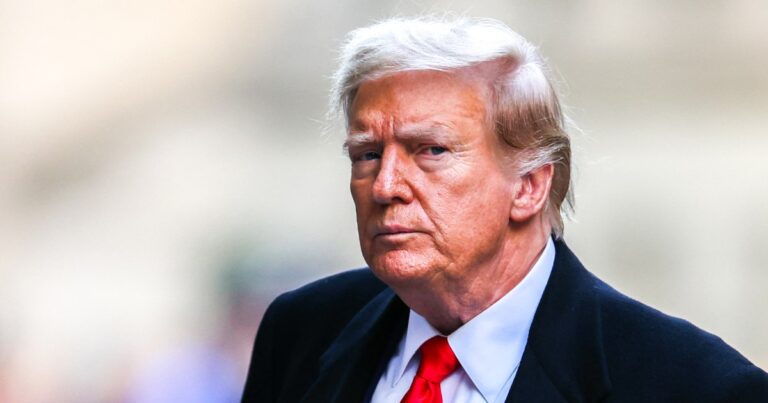Nearly everyone in the courtroom was glued to the edge of their seats as Chief Justice John Roberts delivered his opinion in President Trump’s immunity case.
All eight justices present (Justice Neil Gorsuch was absent today) looked toward the gallery while introducing the opinion.
Roberts listed the president’s various official duties, including commanding the nation’s military, appointing judges (including to the Supreme Court, he said), and overseeing international diplomacy.
“Not all of a president’s actions are within the scope of his official duties,” Roberts said, but those that are must be protected. “The president must be able to govern without risk of prosecution or imprisonment,” he said.
“Immunity does not apply to the President’s unofficial acts,” Justice Roberts wrote. But the majority clearly stopped there. “Making that determination may be difficult,” he said, lamenting that neither the district courts nor the courts of appeals have offered guidance on how to distinguish official from unofficial acts.
Roberts cited seven reasons for the Supreme Court’s decision, including that there was no precedent, that the issue was “exceptionally difficult,” and that lower courts had not provided any guidance.
Roberts then refuted a dissent from Justice Sonia Sotomayor, saying the minority dissenters believed today’s ruling would lead to “disastrous consequences.” Roberts said that if the minority dissenters did not rule today, “it would ultimately be the executive branch that eats itself alive.”
“The president is not above the law,” Roberts said as he finished reading the majority opinion.
During Sotomayor’s dissent, Justice Clarence Thomas appeared to have difficulty keeping his eyes open and at times leaned back in his chair, as if testing the limits of its flexibility. Justices Roberts and Samuel Alito read the court with Sotomayor, while Justices Alito, Elena Kagan, Ketanji Brown Jackson, and Brett Kavanaugh looked in and around the gallery.
Sotomayor said that “whenever a president uses public power for any purpose, even the most devious purpose,” he is almost certain to be immune from prosecution. “The vast majority manufacture their immunity through violence.”
She then gave the court some examples of the actions a president could now take with this new immunity: Order Navy SEAL Team Six to assassinate a political opponent? “Immunity. The president is commander in chief,” she said sarcastically.
“I fear that our democracy is at risk and I stand with the framers of the Constitution in opposition to this,” she said.

